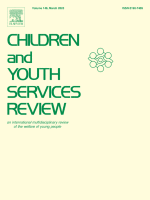Abstract
There are a lack of studies examining youth’s perspective on their experiences in residential care. Such studies may yield important contributions to quality improvement and, hence, outcomes of youth in residential care. In this mixed-methods study, the authors aimed to evaluate youths’ perspectives of the quality of care and experiences in residential group care.
The sample (N = 450) was comprised of 50.9% females and 48.6% males with a mean age of 14.77 (±2.27). The majority were white (36.3%) and black (36.0%). The sample was drawn from 127 residential care programs in Florida.
This study was approved by an Institutional Review Board. Data were collected as part of a larger statewide pilot of the Quality Standards Assessment (QSA).
The authors used univariate analyses to describe quality ratings and a multilevel model to examine associations between QSA scores and youth and program characteristics. Youths’ care experiences were categorized using a content-analysis of their open-ended responses. Overall, youth rated the quality of their placements highly. The multilevel model revealed that quality ratings were higher among youth with family reunification as their discharge plan versus non-relative care.
Youths’ open-ended responses supported positive views on their placements and connections with staff. Negative comments focused on environmental restrictions and staff/peer relations. The inclusion of youth perspectives can contribute to improved service experiences and outcomes.

